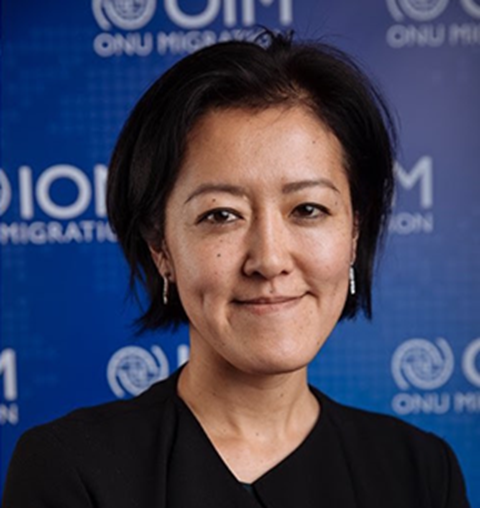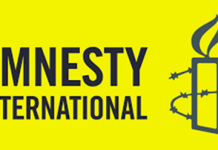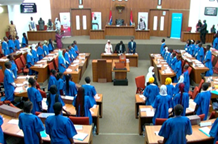By Ndey Sowe
The National Migration Policy (NMP) 2020-2030 which was launched on December 23rd, 2020 is the first of its kind in The Gambia.
The new policy seeks to address the issue of migration in the country, and the Gambia Government has committed itself to implement it to maximize the development potential of migration and ensure full respect of all migrants.
But despite the government’s commitment, migration advocates are strongly calling for the new policy not to be one of those documents that are left in shelves to gather dust in the offices of the government.
They want the policy implemented by addressing the challenges and plights of all migrants including returnees.
Mustapha Sallah, Secretary General of Youth Against Irregular Migration (YAIM), appealed for the policy to be translated into local languages for the benefit of migrants and potential migrants who have little or no understanding of the English language.
“We, the migrants, would also want the government to conduct a series of consultations with us in the execution of the policy strategies,” he said. “Migration is important, it brings development and this has been recognised by the policy.”

The new policy provides The Gambia government with a comprehensive approach to migration management and governance.
Internally, the policy seeks to identify the drivers of internal migration and to reduce environmental degradation potentially linked to fast urbanisation processes.
Sallah agrees that “rural-urban migration is an important aspect that needs the attention of the policy and subsequently, programmes to be implemented from it”.
One of the objectives of the policy is “to ensure that the human, economic, labour and civil rights of Gambians abroad are well protected”.
To achieve this, Sallah said “the government should ensure diplomatic representatives are appointed to destination countries for Gambian migrants”.
The policy is also intended to facilitate the development of a sound mechanism for the safe return and sustainable reintegration of Gambian migrants into their communities.
“It is very important that funding and opportunities are created for migrant returnees to be able to settle down and contribute in a meaningful way to their personal development and that of their communities,” Sallah said. “The government’s partners need to do more to support returnees to successfully reintegrate.”
From paper to action
Sait Matty Jaw, Researcher and a Political Science Lecturer at the University of The Gambia (UTG), said the migration policy is long overdue.
“In terms of content, the policy has beautifully solved the issues of migration,” Jaw observed. However, he said the task now is “to move from paper to action”.

The national migration policy enables Gambians to understand what the government thinks about migration, especially irregular migration (which is locally known as the backway).
To Jaw, the concept of addressing irregular migration is crucial because those who embark on the journey “think there is nothing irregular or illegal about what they are doing”.
He said that it is quite reassuring that the policy seeks to address quite a number of issues that are migration-related.
Consult the youth
Mamina Jallow, the Chairman of Gambia Returnees from the ‘Backway’ (GRB), said it is important to tackle irregular migration and ensure proper reintegration processes.
As part of the strategies to implement the policy, the government wants to design and adopt a scheme for the Gambian diaspora to return periodically to the country for project-tied tasks.

This will include improvement in education and training among the youth and the strengthening of capacity for greater participation in development activities.
Jallow said there is need for holistic capacity building for migrants, especially returnees and intending migrants.
“The training on skills development, including entrepreneurship skills, needs adjustment,” he said. “The duration of two or three days is short for a person to be fully-trained and fully-equipped with the needed skills.”
Jallow said if more awareness is created, she is optimistic that the policy will change people’s perception about irregular migration and help address the root causes.
“Let the government consult the youth before making decisions and laws that will affect them,” he said.
Milestone for migration governance
Fumiko Nagano, IOM Chief of Mission in The Gambia, said the launch of Gambia’s first standalone National Migration Policy in December 2020 was truly a “milestone for migration governance.”

The document outlines several actionable recommendations on addressing irregular migration, including combatting migrant smuggling and trafficking, facilitating the sustainable return and reintegration of Gambian migrants stranded abroad, and promoting regular migration pathways that represent alternatives to irregular migration.
These recommendations, she observed, identify the necessary legal and regulatory frameworks, protection mechanisms, and strategies to combat irregular migration and facilitate safe, orderly and regular migration.
“Most importantly, the policy serves as an overarching guide for various stakeholders to harness the benefits of well-managed migration,” Nagano said.
“These include promoting ethical recruitment of labour migrants, building migrants’ skills, facilitating remittance flows and reducing transfer costs,” she added.
Nagano said the IOM is committed to supporting the government of The Gambia in the implementation of the policy.
The new migration policy, signed by the Minister of Interior, Yankuba Sonko, will serve as a blueprint to guide migration governance in The Gambia in line with the National Development Plan (NDP, 2018-2021).


















